The Impact of The Uniforms Project
The uniforms project is 100% complete. A total of 24,342 student items (uniforms, supplementary items, and shoes) were made and distributed to our 3 schools through our Ariang Network of Schools – this impact reached 2,505 and transformed their school life in many ways. This particular project was 100% funded by Tailored for Education.
Below is a summary of items distributed and their impact in the community.
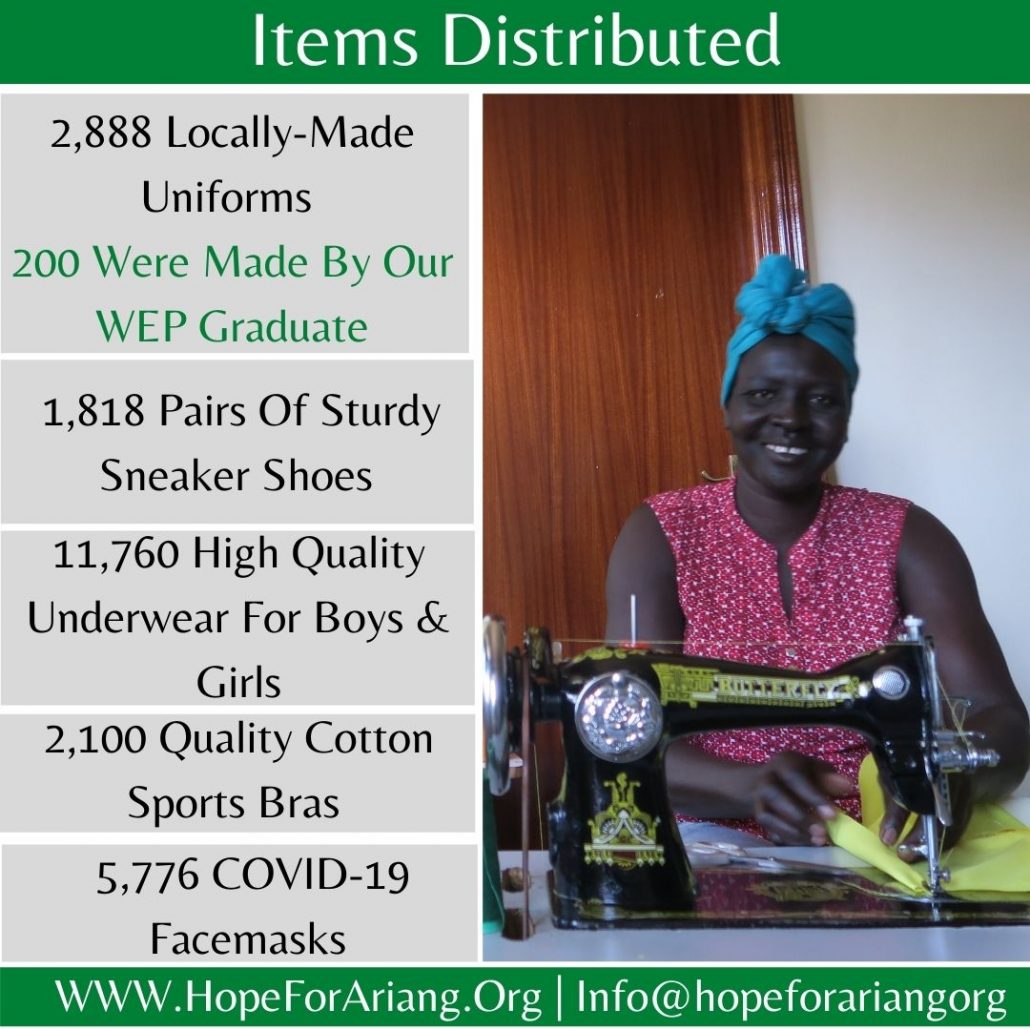
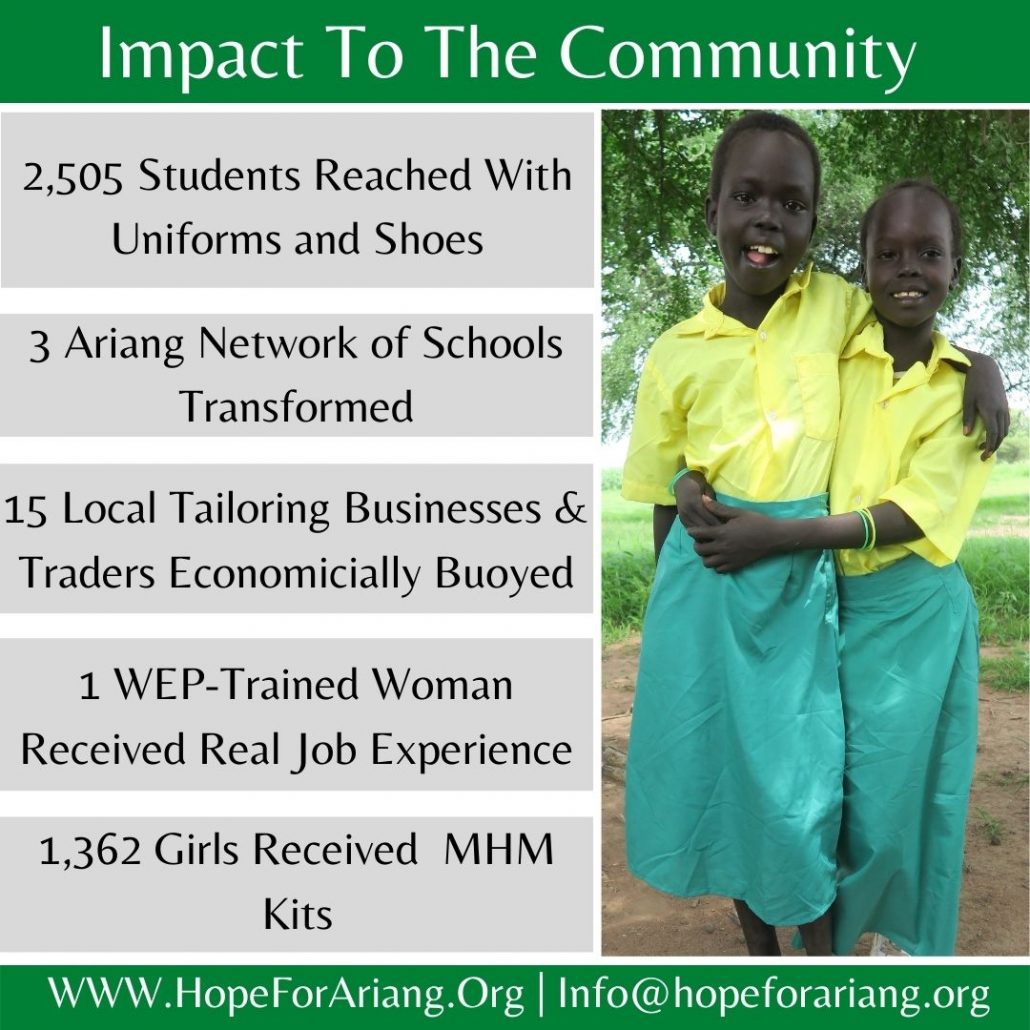
The schools reached by this project include Ariang School, Nyieth School, and Mading School. We would like to feature Mading School because it has a unique set of challenges.
Mading School | The School Under A Collection Of Trees
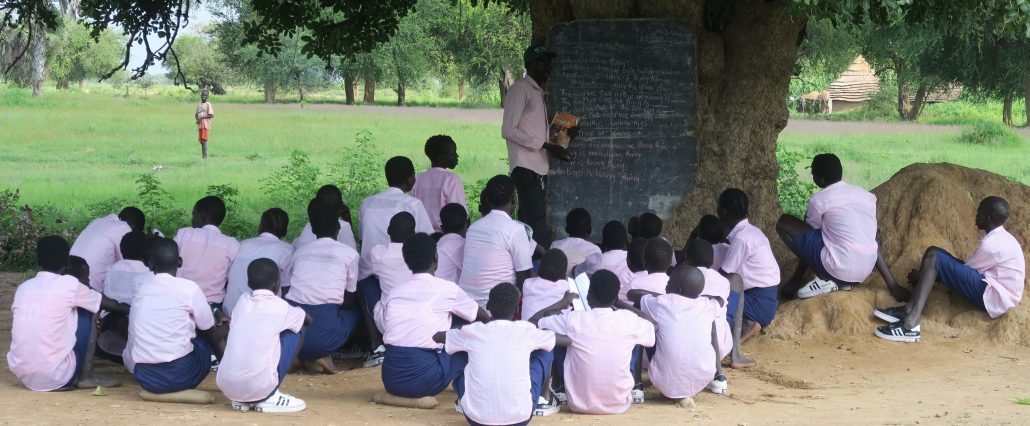
Mading Primary School is a makeshift school where all teaching and learning for over 565 students [current student population] and sixteen members of the teaching staff happen under a collection of trees in a cleared field. The school doesn’t have a single structure and classrooms are simple chalkboards propped up against a tree while students huddle around on the ground and write from their laps.
The Weather Determines Learning
The school administration and the teaching staff explained to us that extreme weather conditions such as rains, sand storms, scorching afternoon sun, and warm breezes usually bring learning to a standstill for days, weeks, and sometimes, for months.
Students Sit On Rocks and Tree Roots To Recieve Instructions

When the weather is favorable, students of Mading School walk through grasslands, dusty/bare grounds, and soaked
fields depending on the season to reach the school. The school does not have a good road accessing it – only footpaths made by grazing animals and people. Upon reaching the school, the students sit on rocks and tree roots to receive instructions. Students endure ‘the scorching sun of South Sudan’ when trees shed their leaves and younger students are usually advised to stay at home during these times.
Challenges and Socio-economic Disparities
Mading School is located at the heart of the poorest village in Ariang. The majority of students do not have school uniforms or shoes and they put on whatever clothes they have. Socio-economic disparaties are easily noteceable when you look around. These disparities bring in, many forms of educational inequalities and social stigma to the students. This uniforms project filled many of these gaps in addition to the impact stories highlighted above
Our Dream For Mading School
Our wish and dream is to build proper school infrastructures but we often have financial shortfalls considering that our organization is young. Here is a short vision we wrote for this school but we haven’t been able to raise enough funds to make it a reality.
Seeking Support For This School
Any support or connections to organizations or international governments that fund these types of projects is highly welcomed. Together we can build this school one classroom at a time through our collective effort. The benefits will be great, lasting, and impactful.
We welcome you to support the kids of Mading School by making a donation of any amount. Every $10 supports one kid with one year school supplies. This is the first postitive step in the direction of making education more accessible to kids of South Sudan.
Checks donation can be sent to:
HOPE for Ariang Foundation
P.O BOX 569,
Syracuse, NY, 13214
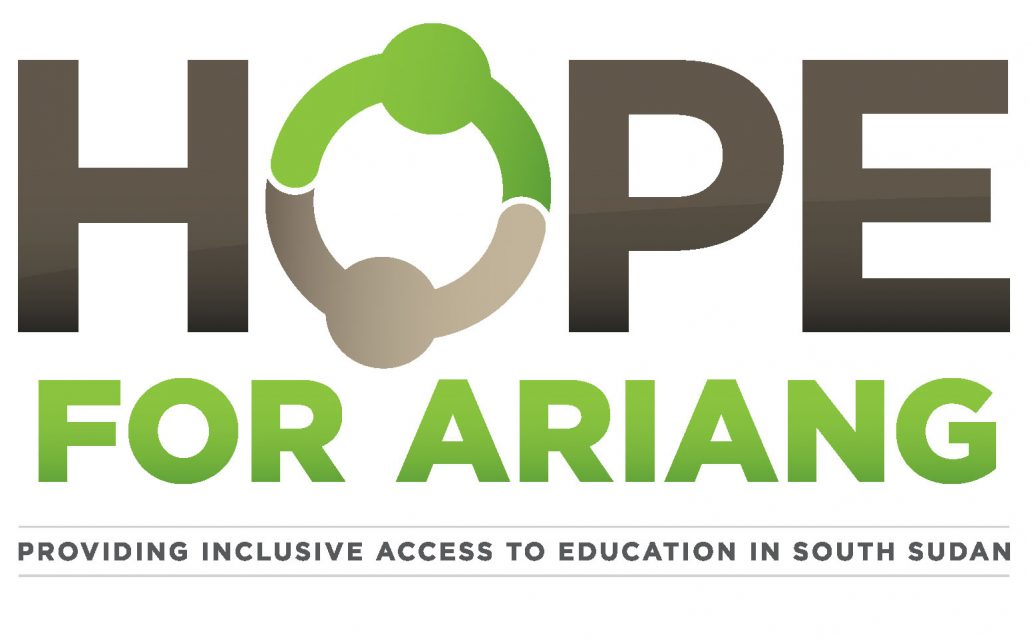
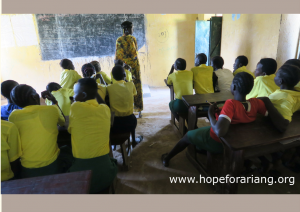 In collaboration with Ariang’s female teacher Maria Adyior, the program started with interviewing the
In collaboration with Ariang’s female teacher Maria Adyior, the program started with interviewing the  Some girls said in most cases they can’t concentrate in class. They always think about sudden menstruation leakage and what others will say about them.
Some girls said in most cases they can’t concentrate in class. They always think about sudden menstruation leakage and what others will say about them.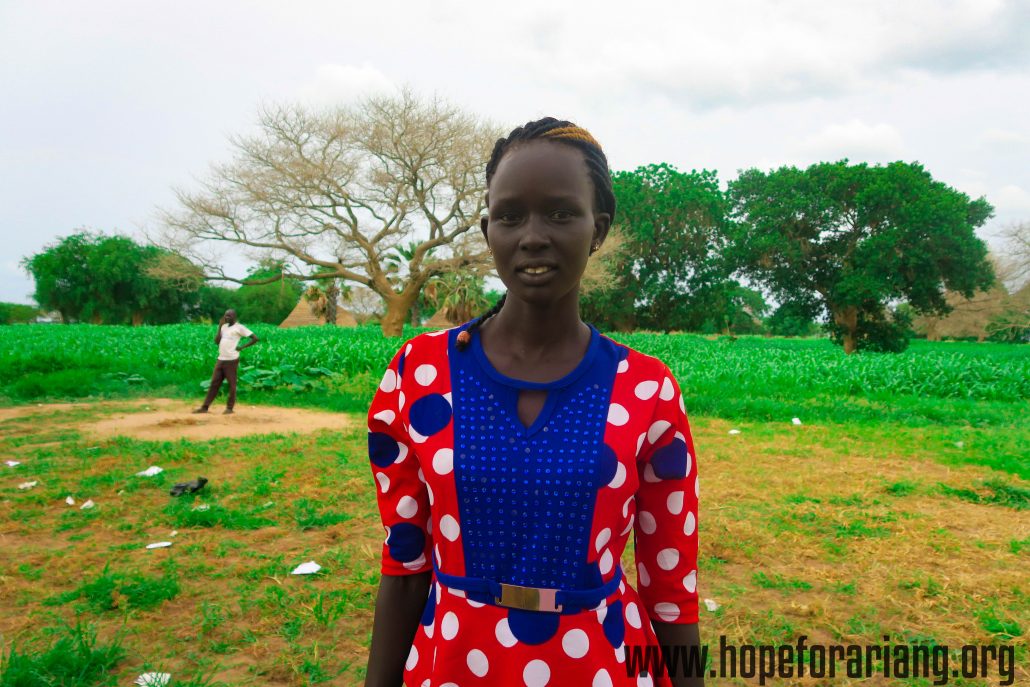
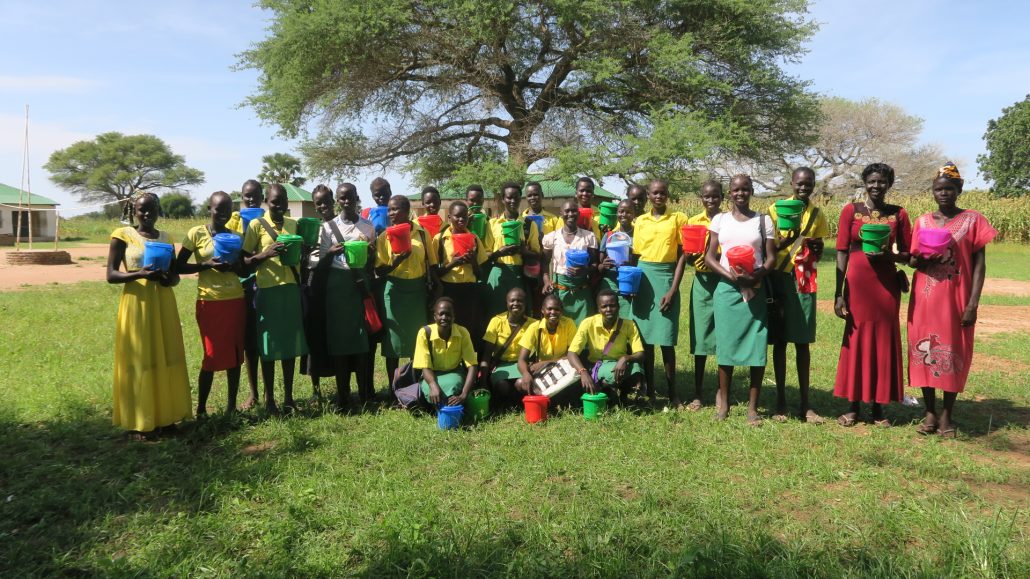 At the end of the training session, the women and girls were given a reusable sanitary kit which included three underwears, four reusable sanitary pads, a bucket and a soap. By using reusable pads, girls will be able to safely, comfortably and consistently manage their periods without worrying about embarrassment and shame.
At the end of the training session, the women and girls were given a reusable sanitary kit which included three underwears, four reusable sanitary pads, a bucket and a soap. By using reusable pads, girls will be able to safely, comfortably and consistently manage their periods without worrying about embarrassment and shame.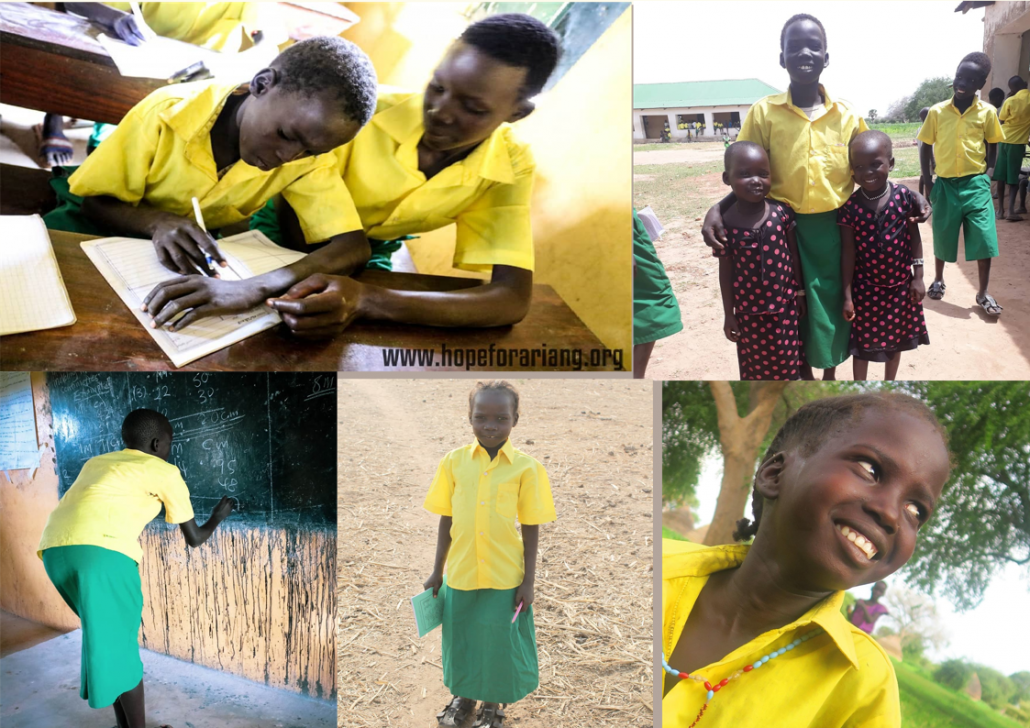 Our target is to empower all girls at Ariang school to happily attend school daily, concentrate in class and reach their potentials. If you would like to donate to our Women and Girls Empowerment Program, you can make a donation
Our target is to empower all girls at Ariang school to happily attend school daily, concentrate in class and reach their potentials. If you would like to donate to our Women and Girls Empowerment Program, you can make a donation 